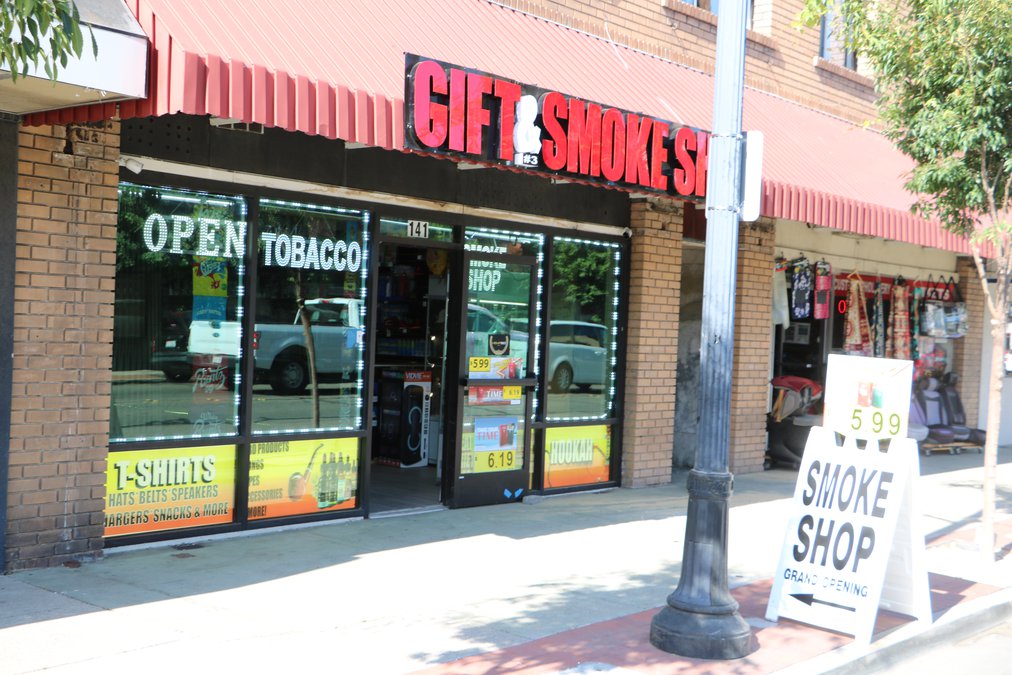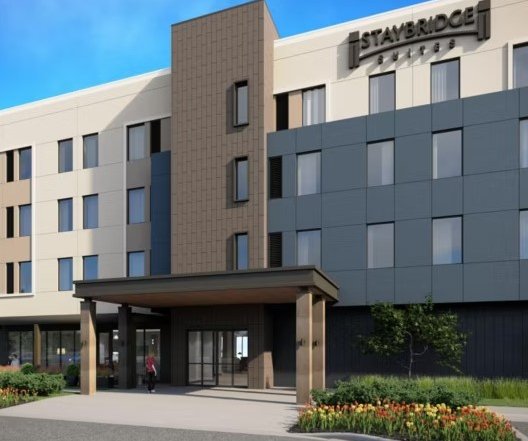There’s a new smoke shop downtown.
The smoke and gift shop in the 100 block of West Yosemite has some other merchants irked as they thought they fought the battle in 2016 to prevent businesses from opening such as tattoo parlors, night clubs, and smoke shops from opening in the “downtown core” in a bid to encourage more pedestrian businesses.
Turns out the urgency ordinance passed Jan. 4, 2017 to block a nightclub with pro wrestling matches from opening in a former billiards hall in the 200 block of West Yosemite during the time from when a non-urgency ordinance was adopted Dec. 20, 2016 regarding allowed uses could legally go into effect 45 days later on Feb. 3, 2017 didn’t exclude smoke shops and tattoo parlors.
Smoke shops fall under the allowed general retail use designation.
Tattoo parlors fall under personnel services that are allowed in the downtown core with one exception — laundromats.
The only problem with that is the downtown business district zone No. 1 or the core of downtown includes the 100 block of East Yosemite where the Spin Cycle opened in 2017, after the zoning change was put in place.
Business owners such as Brenda Franklin of Tipton’s who pushed to prevent new smoke shops and tattoo parlors from opening along Yosemite Avenue from the railroad tracks east to Lincoln Avenue thought it had been included in the overlay zone as a non-allowed use in the downtown core.
It was expressed at the time that allowing tattoo parlors and smoke shops that weren’t in place at the end of 2016 would work against efforts to secure uses such as downtown dining.
But what is more perplexing is the city shortly after going through yet another exercise aimed at “improving downtown” looks as if they dropped the ball on allowing a non-permitted use in the form of the laundromat in the core district.
No one has complaints about the Spin Cycle that has a solid reputation nor do they suggest it should be moved. But as a non-allowed use it is grouped with adult orientated business such as bookstores that sell pornography some are questioning how it slipped through the approval process shortly after the overlay zoning went into effect.
Councilman Gary Singh was also under the impression the directive given staff back in 2016 by the council was not to allow more smoke shops in the core district.
Singh believes that the city, to avoid misunderstandings and make it clear what city zoning and other restrictions allow for specific parcels, should harness municipal tech in place employing geographic information systems (GIS) so that parcel owners and the general public will be able to enter an address and find what zoning-related issues apply to the property.
He also indicated often times the issue is with departments not communicating effectively with each other. The power to make that happen lies with the city manager’s office and not the elected council.
The zoning overlay — suggested in studies related to the 1998 Vision 2020 undertaking that lead to the Manteca Transit Center with a community room, the expansion of Library Park, the downtown mural projects, the landscaping bulb-outs, sidewalk and crosswalk pavers, and the replacement of street lights and traffic signals with the Tidewater-style design — is an example of the city taking the initiative and moving forward with rules, strategies, and improvements without hiring a consultant.
To contact Dennis Wyatt, email dwyatt@mantecabulletin.com






